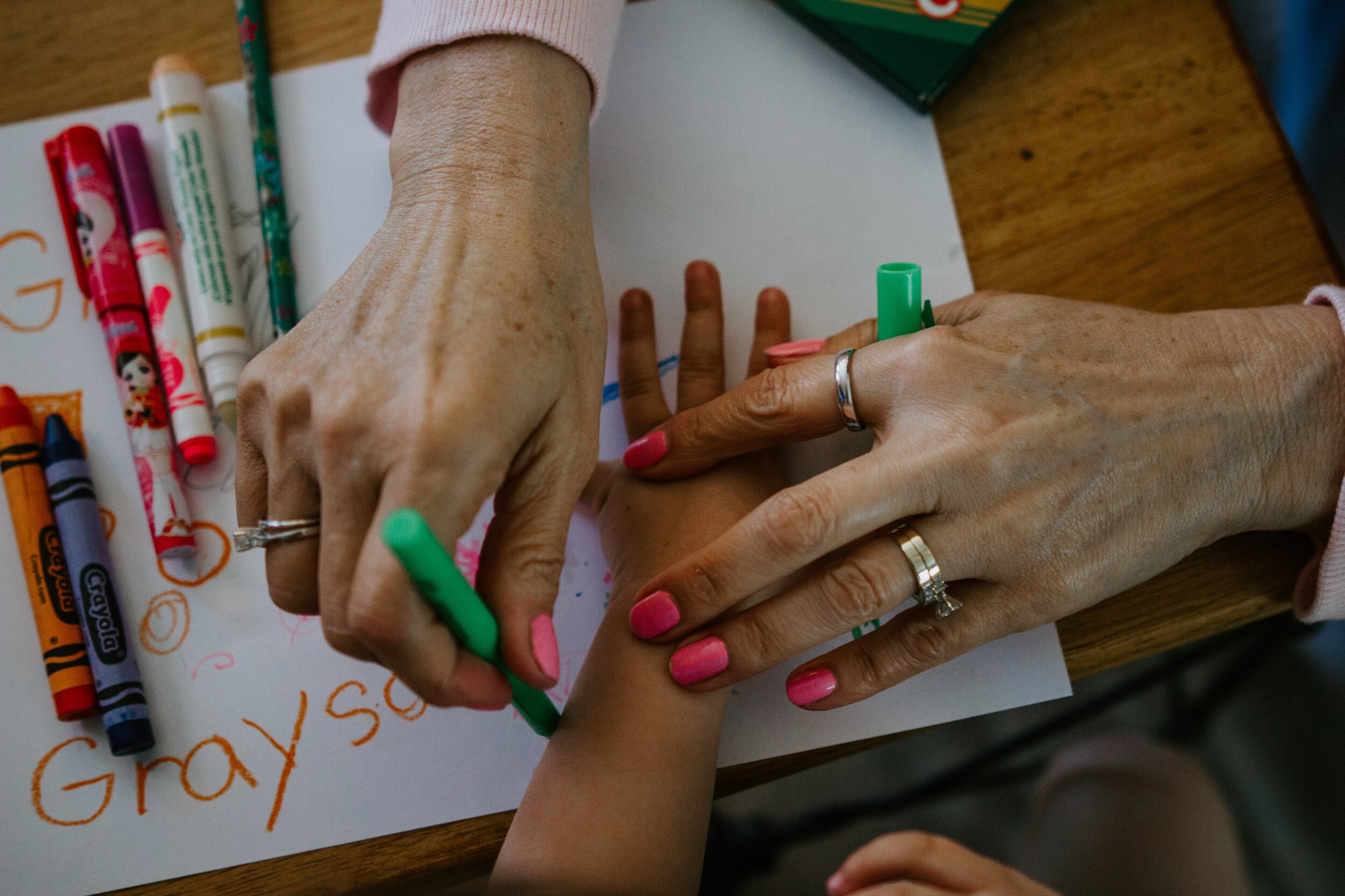
Strategies to Improve Working Memory in Children
Working Memory is part of your child’s short-term memory. It is the part of the brain that helps with briefly holding onto, working with, and prioritizing small bits of information. Children with weaker working memory skills (compared to their other strengths) can struggle or demonstrate inconsistencies with tasks that require them to hold onto information while also doing something else. For example, they may struggle with following through with your requested multi-step list of simple chores as they attempt to avoid the distraction of the T.V, play room, and dog while they run upstairs to complete them. In school, the child may make seemingly silly errors for a math calculation sequence despite their math problem solving strengths or have difficulties with listening to instruction while writing down notes. Without skill building or support, these children can be perceived as being avoidant, distracted, or not paying attention to even seemingly simple or routine requests/information. In reality, their brain is struggling to juggle, hold onto, fully complete, and/or recall what they were supposed to do. When children have uneven or weaker development of their working memory, which contributes to the “cognitive proficiency” part of the brain, it impacts their efficiency with executing tasks (and feeling competent/confident) despite their wonderful intellectual, academic, adaptive, interpersonal, and other strengths. In return, their brain may experience something called cognitive overload, which can impact their distress tolerance, coping, and problem solving during times when their working memory gets “too full.”

ADHD symptoms that impact Reading
Many children and adults with ADHD struggle with aspects of reading. While reading skills are essential for academic and learning success, not all children who struggle to read have reading disabilities or Dyslexia. Some of the most common reading difficulties that children with ADHD experience include: Difficulties with encoding and decoding, Phonological and Orthographic Processing, Rapid recall of site words, Reading fluency (including skipping over words, difficulties with pacing, whole word errors), Visual tracking (losing spot on the page)….

Working Memory Strategies for Children
While it is common to believe that most difficulties with reading, math, or other aspects of academic learning efficiency are solely linked to learning disabilities, such as Dyslexia or Dyscalculia, working memory weaknesses can be another common underlying reason for difficulties with word recall, fluency, math computation, and other aspects of school success.

Understanding Psychoeducational Testing Terms: Working Memory
Working Memory or “Short-Term Working Memory” skills are another common area assessed during your child’s comprehensive psychoeducational or neurodevelopmental evaluation. Working Memory is a different type of memory that is a part of our short-term memory. In fact, it can sometimes be interchangeable with short-term memory, even though they are not quite the same. Working Memory is a part of short-term memory that allows our brain to hold onto/work with small bits of information for a brief period of time. Think of it as our “Post-it” or “sticky note” brain. It is a brief holding tank that helps us hold new information so we can either work with it or connect it with other important information. It is your child’s mental sketchpad.

What is Dyslexia?
Dyslexia is one of the most common learning disabilities. It is a neurodevelopmental disorder called a “Specific Learning Disorder.” This diagnosis can be individualized for children who struggle with reading (Dyslexia), writing, or math.. Young children with Dyslexia most observably struggle with reading new words, sounding out words, recalling or recognizing words they have learned, or struggle in other areas that involve letter recognition and usage, such as writing or spelling. There are several subtypes of Dyslexia, which help inform treatment and school support. Some children may struggle with individual word sounds, others may struggle more with the visual recognition or recall or letter/word symbols, or a combination of both.

What are Neurodevelopmental Disorders?
Today’s post will highlight additional classifications in special education, but more importantly signs and symptoms of how Neurodevelopmental Disorders may present themselves in home and school. Let’s break it down- “Neuro,” means brain and “developmental” indicates manifestation in a child’s early growing years. A “disorder” simply means that the symptoms are significantly impairing some aspect of a child’s ability to function in their environment. Neurodevelopmental Disorders are diagnoses that occur within a child’s early developmental period and they can impact thinking, communication, behavior, motor, or other developmental skills due to differences in the brain. Why is this important? Students with Neurodevelopmental Disorders can be challenged with weaknesses in attention, memory, behavior, social engagement, speech, or other skills that are observed as behavior or learning challenges when they transition to mainstream education. Similar to how weaknesses in these areas may impact us at work or in day-to-day activities, children will also struggle with aspects of functioning in their “job” of learning in school. Therefore, even though symptoms are likely evident prior to school entrance (and may be diagnosed at this time), they are recognized most often as a child enters the structured and mainstreamed school setting as this is where impairment in their functioning becomes most apparent.

What is a Specific Learning Disability?
It is not unusual to have a child struggle with a specific topic or subject from time to time. This in itself does not mean they have a learning disability. Children with learning disabilities struggle with a specific set of skills, even when their overall intelligence or other aspects of functioning are not affected. Learning disabilities are a result of brain based differences that make some subjects or school-based activities difficult for children if they do not have accommodations. Children with a learning disability may feel frustrated they cannot complete tasks despite their hard work and you may see hopelessness, behavioral outbursts, withdrawal, or negative perceptions of school develop over time if undetected. Eligibility requirements in determining whether your child can be classified as having a Specific Learning Disability may differ by state, however, in the state of North Carolina a Specific Learning Disability is generally defined as the following.